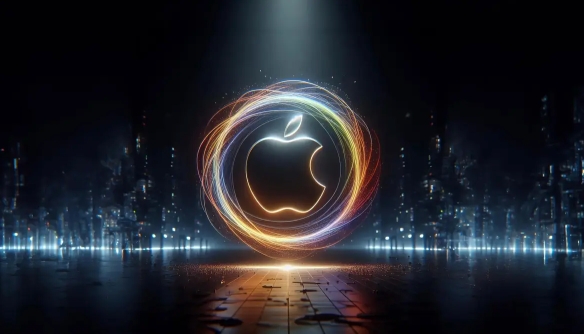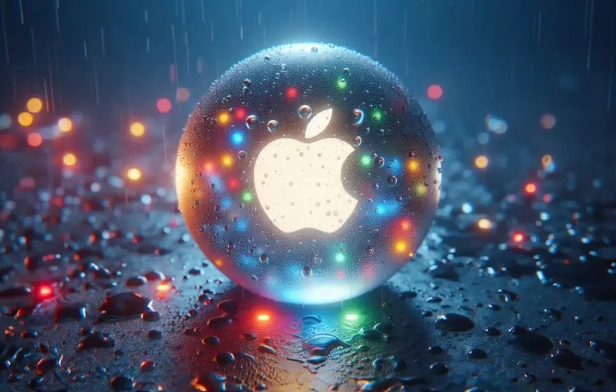回復パーティションなしでMacにmacosをインストールする方法は?
如果Mac没有恢复分区,可以通过创建外部可启动安装器来安装macOS。具体步骤如下:1. 使用至少12GB的U盘下载macOS安装程序(如Ventura、Monterey或Big Sur),并通过磁盘工具将其格式化为“Mac OS Extended (Journaled)”。2. 在终端中运行createinstallmedia命令,将U盘转换为可启动安装器。3. 关闭Mac并插入U盘,开机时按住Option键选择U盘启动。4. 进入macOS安装环境后,使用磁盘工具选择内部硬盘并格式化为APFS或Mac OS Extended。5. 最后按照屏幕提示完成macOS安装,安装过程大约需要20至40分钟,完成后Mac会自动重启进入设置助手。

If your Mac doesn't have a recovery partition, installing macOS might feel tricky at first, but it's definitely doable. The key is to create an external bootable installer and use that to get the job done.

Here’s how you can handle it step by step:

Create a bootable macOS installer on a USB drive
To install macOS without a recovery partition, you’ll need a USB flash drive (at least 12GB or more) to make a bootable installer. Apple provides tools for this, and it's straightforward if you follow the right steps.
-
Download the macOS installer from the App Store (like Ventura, Monterey, or Big Sur — depends on what your Mac supports).

Plug in your USB drive and format it using Disk Utility: name it something like “MacOS Install,” and choose "Mac OS Extended (Journaled)" as the format.
-
Open Terminal and run the
createinstallmediacommand. For example, if you downloaded Ventura, the command would look like:sudo /Applications/Install\ macOS\ Ventura.app/Contents/Resources/createinstallmedia --volume /Volumes/MacOS\ Install
This process will erase the USB drive and turn it into a full macOS installer.
Boot from the USB installer
Once you’ve created the bootable USB, you’re ready to start the installation process.
- Shut down your Mac.
- Plug in the USB drive.
- Turn on your Mac while holding the Option (⌥) key — this brings up the startup manager where you should see your USB drive listed.
- Select the USB volume and press Enter to boot from it.
From here, you'll land in the macOS Installer environment, which includes Disk Utility and the actual macOS installation option.
Use Disk Utility to prepare your internal drive
Before installing macOS, you need to make sure your internal drive is formatted correctly.
- From the installer screen, go to Utilities > Disk Utility.
- Select your main internal drive (not just a partition), and click "Erase."
- Choose APFS (or Mac OS Extended if needed) as the format, depending on your Mac model and macOS version.
- Give it a name like “Macintosh HD” and proceed with erasing.
Once that’s done, close Disk Utility and proceed to install macOS on the newly formatted drive.
Install macOS from the installer
Now that your drive is ready, the last step is to actually install macOS.
- Follow the on-screen instructions — select your target disk (the one you just erased), and let the installer do its thing.
- It may take 20–40 minutes depending on your hardware.
- Once installed, your Mac should restart automatically and boot into the setup assistant.
Make sure to keep your USB installer handy in case you ever need to repair or reinstall macOS again.
That’s basically all there is to it. You don’t need a recovery partition if you've got a bootable installer ready. Just remember to match macOS versions to your Mac’s compatibility, and double-check the formatting steps so everything boots properly.
以上が回復パーティションなしでMacにmacosをインストールする方法は?の詳細内容です。詳細については、PHP 中国語 Web サイトの他の関連記事を参照してください。

ホットAIツール

Undress AI Tool
脱衣画像を無料で

Undresser.AI Undress
リアルなヌード写真を作成する AI 搭載アプリ

AI Clothes Remover
写真から衣服を削除するオンライン AI ツール。

Clothoff.io
AI衣類リムーバー

Video Face Swap
完全無料の AI 顔交換ツールを使用して、あらゆるビデオの顔を簡単に交換できます。

人気の記事

ホットツール

メモ帳++7.3.1
使いやすく無料のコードエディター

SublimeText3 中国語版
中国語版、とても使いやすい

ゼンドスタジオ 13.0.1
強力な PHP 統合開発環境

ドリームウィーバー CS6
ビジュアル Web 開発ツール

SublimeText3 Mac版
神レベルのコード編集ソフト(SublimeText3)
 MACOSシステム上のMySQLのインストール手順の詳細な説明
Apr 29, 2025 pm 03:36 PM
MACOSシステム上のMySQLのインストール手順の詳細な説明
Apr 29, 2025 pm 03:36 PM
MASQLのインストールは、次の手順で実現できます。1。コマンド/bin/bash-c"$(curl-fsslhttps://raw.githubusercontent.com/homebrew/install/head/install.sh)を使用して、Homebrewをインストールします。 2. Homebrewを更新し、Brewupdateを使用します。 3. mysqlをインストールし、Brewinstallmysqlを使用します。 4. mysqlサービスを開始し、Brewservicesstartmysqlを使用します。インストール後、MySQL-Uを使用できます
 MacOSにAdobereaderをインストールする方法
May 16, 2025 pm 08:33 PM
MacOSにAdobereaderをインストールする方法
May 16, 2025 pm 08:33 PM
AdobereaderはMacosをサポートしなくなり、AdobeacrobatreaderDCが必要です。 1)Adobeの公式Webサイトにアクセスして、MacOSに適したバージョンをダウンロードします。 2).dmgファイルを開き、アイコンを「アプリケーション」フォルダーにドラッグし、管理者パスワードを入力してインストールを完了します。 3)「アプリケーション」フォルダーからAdobe AcrobatReaderDCを起動します。
 MACOSのインストール中に「UNTRUSTED_CERT_TITLE」エラーを修正します
Jul 07, 2025 am 01:06 AM
MACOSのインストール中に「UNTRUSTED_CERT_TITLE」エラーを修正します
Jul 07, 2025 am 01:06 AM
「unstrusted_cert_title」エラーを解決するには、まず公式の認定インストーラーを使用して正しく作成する必要があります。第二に、システム時間設定が正確かどうかを確認し、ファームウェアとブートストラップを更新し、最後にネットワークリカバリを介してmacOSをインストールしようとします。特定の手順は次のとおりです。1。公式のAppStoreインストーラーを使用し、CreateInstallMediaなどのAppleツールを介してUSBインストーラーを作成して、ファイルを手動でコピーしたり、サードパーティツールを使用したりしないようにします。 2。回復モードに入った後、端末コマンドを介して日付と時刻を修正します。 3. MacのEFIまたはファームウェアを確認して更新して、ハードウェアがターゲットMacOSバージョンをサポートしていることを確認します。 4.ロングプレスオプションコマンドr rネットワークを開始する
 空白のハードドライブにmacOSをインストールする方法は?
Jul 07, 2025 am 12:32 AM
空白のハードドライブにmacOSをインストールする方法は?
Jul 07, 2025 am 12:32 AM
ゼロからMacOSをインストールすることは複雑ではありません。ツールを準備して手順に従うだけです。まず、作業MAC、少なくとも16GBのUSBドライブ、安定したネットワーク接続、十分な時間を準備します。第二に、ターミナルのCreateInstallMediaコマンドを使用して、起動可能なインストーラーを作成することをお勧めします。次に、RecoveryModeまたはUSBインストーラーを介してインストールインターフェイスを入力します。次に、diskutilityを使用して、ターゲットハードディスクをAPFSまたはマコーテンデッドとしてフォーマットします。最後に、プロンプトに従ってインストールプロセスを完了します。
 Path /system/installation/packages/osinstall.mpkgが欠落または破損しているように見えるため、macosをインストールできませんでした
Jul 06, 2025 am 01:04 AM
Path /system/installation/packages/osinstall.mpkgが欠落または破損しているように見えるため、macosをインストールできませんでした
Jul 06, 2025 am 01:04 AM
「パス/システム/インストール/パッケージ/osinstall.mpkgappearstobemissingordAmagedのために「Macosをインストールできなかった」というプロンプトに遭遇すると、システムのインストールパッケージが失われたり破損したり、Macosのアップグレードがあります。ソリューションには次のものが含まれます。1。ブートメディアが完了したかどうかを確認します。公式CreateInstallMediaコマンドを使用してブートディスクを作成し、osinstall.mpkgが存在するかどうかを確認することをお勧めします。 2.「リカバリモードから」を選択します
 MacOSのインストールにはどのくらい時間がかかりますか?
Jul 03, 2025 am 01:06 AM
MacOSのインストールにはどのくらい時間がかかりますか?
Jul 03, 2025 am 01:06 AM
AcLeanMacosInStallationTypicalyTakes30minutestoanhour、butseveralfactorscanextendtheprocess.1)InternetRecoveryMayadd15minutestoveranhourforosdownload.2)instimevariesbetween20–40minutation dowterdowndowdcompltion.3)stora
 Apple IDなしでMacOSをインストールする方法は?
Jul 14, 2025 am 01:19 AM
Apple IDなしでMacOSをインストールする方法は?
Jul 14, 2025 am 01:19 AM
AppleIDを使用せずにMacOSをインストールできますが、一部の機能は限られています。インストールプロセス中にAppleIDへのログインを強制する必要はありません。ローカルアカウントを作成して、システムの基本機能を使用できます。ただし、iCloud同期、AppStoreのダウンロード、MACの検索などの機能は、AppleIDを有効にする必要があります。 1.インストールするときは、USBドライブを使用してディスクまたはリカバリモードを起動してローカルアカウントを作成できます。 2.ローカルアカウントは、Webページを閲覧したり、ドキュメントを編集したり、プログラム開発をしたり、メディアをプレイできますが、iCloudを使用してほとんどのAppStoreアプリケーションをダウンロードすることは不可能です。 3. AppleIDをスキップして初めてログインしてローカルアカウントを作成します。 4.コンピュータールームの機器、開発とテスト、プライバシーに敏感なユーザーに適しており、Appleを長期使用に結合することをお勧めします。
 MACOSインストールガイド用のOpenCore Legacy Patcher
Jul 19, 2025 am 01:26 AM
MACOSインストールガイド用のOpenCore Legacy Patcher
Jul 19, 2025 am 01:26 AM
デバイスがAppleの公式サポートリストにない場合は、OpenCoreLegacypatcher(OCLP)を介して古いMacにmacOSをインストールできます。特定の手順は次のとおりです。1。2012年頃にMacBookPro、IMAC、MacMiniなどのデバイスの互換性を確認し、マザーボードチップセットがEFIモードをサポートしているかどうかを確認します。 2. 16GB以上のUSBドライブを準備し、MacOSインストールUSBドライブを作成し、公式コマンドまたはサードパーティツールを使用して画像に書き込みます。 3. OCLPをダウンロードして実行し、パッチ処理のターゲットデバイスを選択し、カーネルの拡張とドライバーの互換性の問題を自動的に解決し、必要に応じてパッチオプションを手動で調整します。 4.パッチ付きのUSBドライブを挿入し、再起動時にオプションキーを押します








